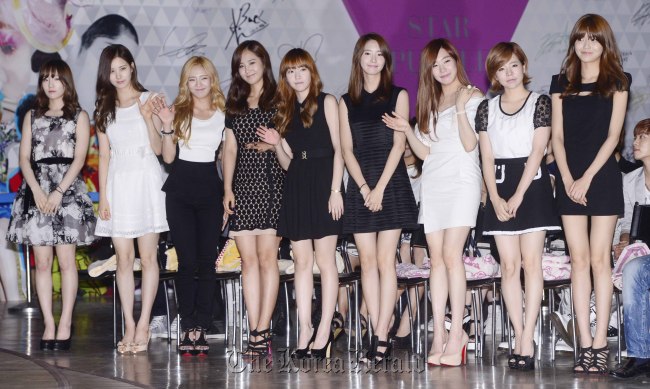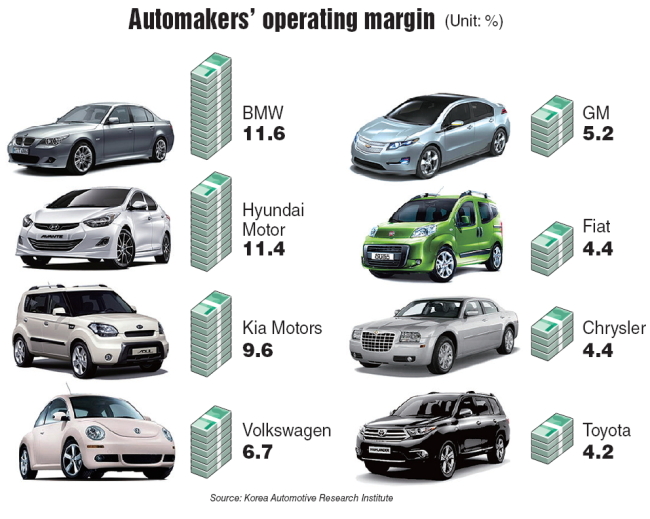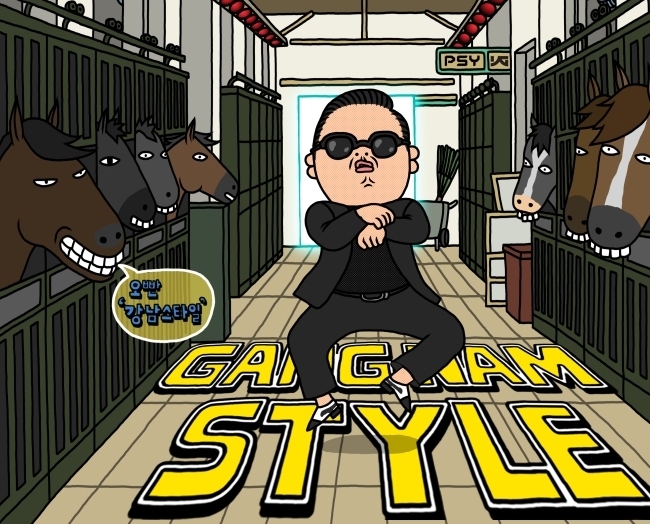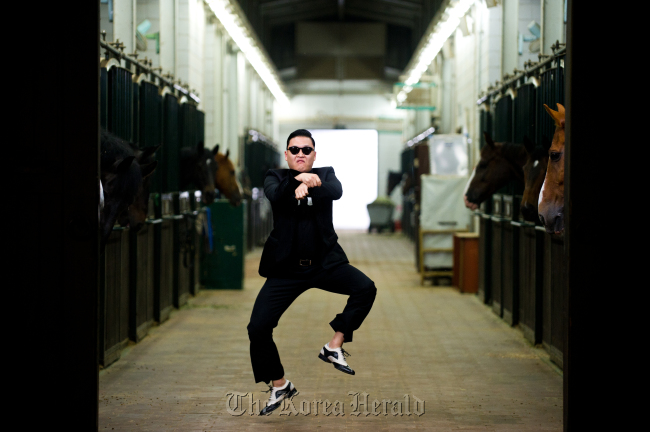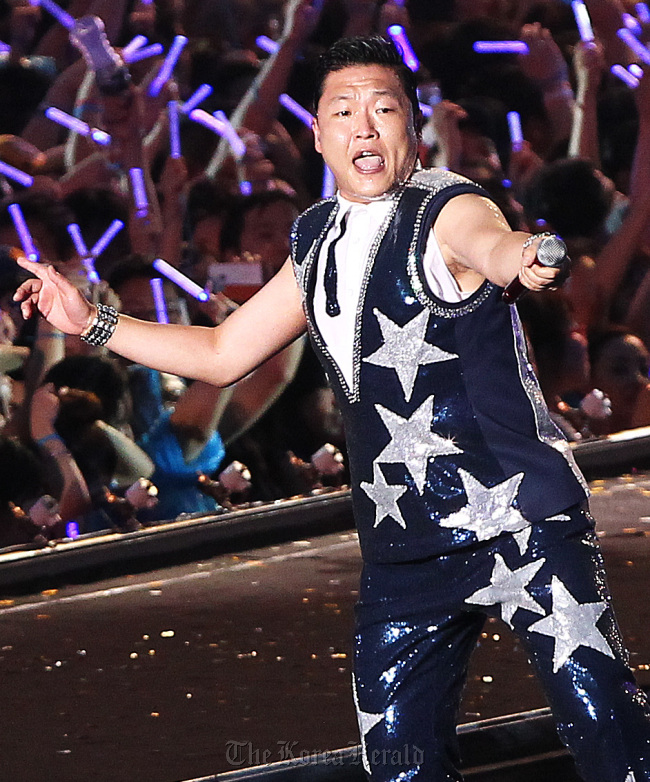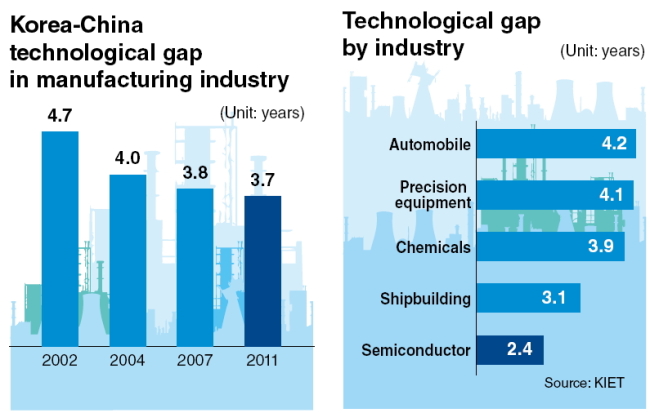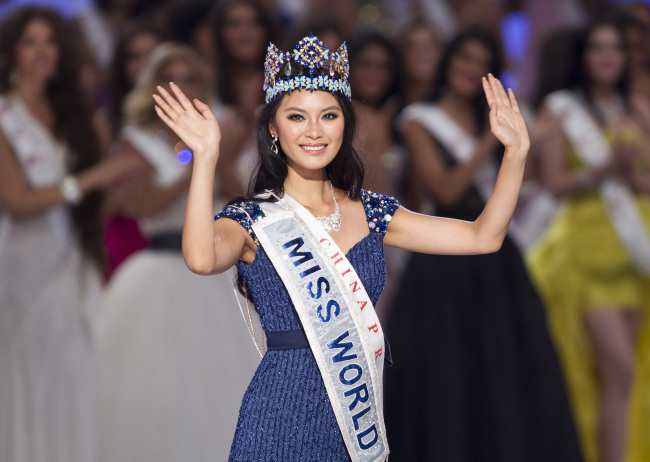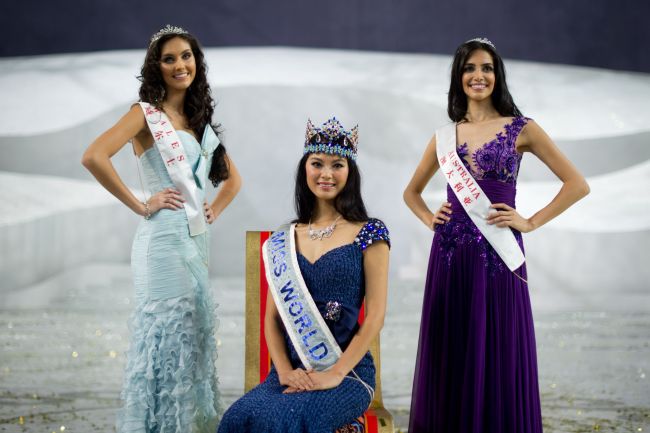Korean pop music is undoubtedly the leading force in the Korean culture boom
that is attracting thousands of visitors to the country.
K-pop was the main reason that brought 21-year-old Hungarian Lici Nemczov to Korea in March.
“I first listened to K-pop music and then learned about Korean culture and food on the Internet. And I came to Korea in March this year to learn the Korean language,” said Nemczov at the K-pop dance class at Seoul Global Culture and Tourism Center in Myeong-dong last week.
She was one of the 15 students attending the K-pop dance class last week at the city-run culture center seeking to broaden their experience of Korean culture.
Two sisters from Germany have been participating in various cultural programs that the center offers during their stay in Korea, mainly for a five-week Korean language course.
“We are here to learn Korean. We thought the best way to learn the language is by visiting the country. I visited the center for cultural experiences. I did all the traditional experiences and I thought it’s time to try modern things,” said Finja Schmalz, who was at the dance class with her sister Svenja Schmalz.
“When we registered for the classes, we didn’t know about them well, but we just registered for every course and hoped to experience as much as possible,” said Svenja.
K-pop dance class popular among young foreign students
The K-pop dance class is a 90-minute dance lesson during which participants can learn the choreography of a popular K-pop song. The first run of the program ran in March and the second started in July.
The class starts off by watching the music video of the selected song. Then a dance teacher demonstrates the moves slowly, breaking down the choreography.
The class has covered songs such as “Twinkle” by Tiffany, Taeyeon and Seohyeon from Girls’ Generation; “Like This” by Wonder Girls; “Electric Shock” by f(x) and “Bad Girl Good Girl” by Miss A.
As the class is popular among girls, male students often ask whether they can join the class, according to a program manager.
In fact, the class has also covered the songs of famous boy bands such as “Be Mine” by Infinite, “Hands Up” by 2PM and “Sorry Sorry” by Super Junior.
After trying the separate moves, students perform the whole choreography rather professionally by the end. The class wraps up with stretching to slow and calming Korean ballads playing in background.
Most of the participants are foreign students attending language courses at universities and language institutes in Seoul, since the center began promoting the programs through such institutes.
But now the center accepts group visitors and can adjust class times according to the groups’ schedules, according to the center’s assistant manager Park Gae-yeon.
K-pop singing class
The singing class can be a bit more challenging than the dance class because students learn both the meaning of the lyrics and the pronunciation, and put them together to sing the entire song.
But it is an optimal learning opportunity for those hoping to learn Korean culture in depth.
The class starts with watching a music video just like the dance class. Then a teacher hands out music sheets with another copy of the Romanized lyrics so that students who cannot read Korean can still sing. The teacher also breaks down the song into several parts and reads each line explaining the meaning. Students follow the teacher who then corrects their pronunciation.
The songs are usually fast songs with repeated lyrics because they are easy to sing, according to the teacher Lee Mi-ok.
Lee usually picks the songs that are easy to follow such as Jang Yoon-jeong’s “Oh My” and Park Hyun-bin’s “Shabang Shabang.”
At the Tuesday class last week, she taught girl group Davichi’s slow ballad “Because It’s You,” an original track for the recent TV drama “Big,” because a Canadian student asked her to teach the song before she returns to Canada next month.
“Slow songs are difficult to learn, because there are many words with hidden meanings and not many repeated lines,” said Lee.
Lee experienced the great demand for Korean language lessons when she lived in China for five years.
“I lived in Shenzhen, China, and there were not many Koreans there. But I saw about 500 Chinese people voluntarily gather at a local university to learn Korean. That’s when I felt the popularity of Korean culture and language first hand,” said Lee.
“We have students good at speaking Korean, and also those who barely speak the language, but one thing in common is that they are willing to learn.”
The center accepts registration by email and phone. The class is free for individual participants and 3,000 won to 5,000 won for group visitors.
Registration is available at www.facebook.com/SeoulGlobalCultureTourismCenter or www.seoultourism.kr and at (02) 3789-7961~3.
K-pop boom spreads to other fields
The popularity of K-pop also influences other cultural fields such as beauty, TV dramas and language.
The culture center presented a K-beauty makeup class in April. The class was such a huge hit that the registration closed in just two days. Buoyed by the popularity, the center plans to convene new K-beauty classes in September and October.
The beauty classes, offered in multiple languages, including English, Japanese and Chinese, and include demonstrations of makeup techniques of Korean celebrities using Korean cosmetics.
“The center created the K-pop programs to promote the contemporary and trendy side of Korean culture to foreigners. We will continue to come up with fun cultural programs like K-beauty and K-culture based on requests and demands of foreign visitors,” said city official Kim Myung-joo, who is in charge of supporting foreign residents in Seoul.
As K-pop is a large part of Korean culture, the Korea Tourism Organization seeks to use K-pop to shed light on other aspects of Korean culture as well.
At a language conference in Cambodia earlier this year, the state tourism agency drew much attention to the Korean language by holding a quiz show on K-pop music, according to Baik Ju-hyun from Hallyu Tourism Team of the KTO.
“We continue to come up with various programs that combine K-pop with other fields to better promote Korean culture to the world,” said Baik.
By Lee Woo-young (wylee@heraldcorp.com)
K-pop was the main reason that brought 21-year-old Hungarian Lici Nemczov to Korea in March.
“I first listened to K-pop music and then learned about Korean culture and food on the Internet. And I came to Korea in March this year to learn the Korean language,” said Nemczov at the K-pop dance class at Seoul Global Culture and Tourism Center in Myeong-dong last week.
She was one of the 15 students attending the K-pop dance class last week at the city-run culture center seeking to broaden their experience of Korean culture.
Two sisters from Germany have been participating in various cultural programs that the center offers during their stay in Korea, mainly for a five-week Korean language course.
“We are here to learn Korean. We thought the best way to learn the language is by visiting the country. I visited the center for cultural experiences. I did all the traditional experiences and I thought it’s time to try modern things,” said Finja Schmalz, who was at the dance class with her sister Svenja Schmalz.
“When we registered for the classes, we didn’t know about them well, but we just registered for every course and hoped to experience as much as possible,” said Svenja.
K-pop dance class popular among young foreign students
The K-pop dance class is a 90-minute dance lesson during which participants can learn the choreography of a popular K-pop song. The first run of the program ran in March and the second started in July.
The class starts off by watching the music video of the selected song. Then a dance teacher demonstrates the moves slowly, breaking down the choreography.
 |
| A dance teacher shows dance moves to students at the K-pop dance class organized by the Seoul Global Culture and Tourism Center in Myeong-dong in Seoul. (Park Hae-mook/The Korea Herald) |
The class has covered songs such as “Twinkle” by Tiffany, Taeyeon and Seohyeon from Girls’ Generation; “Like This” by Wonder Girls; “Electric Shock” by f(x) and “Bad Girl Good Girl” by Miss A.
As the class is popular among girls, male students often ask whether they can join the class, according to a program manager.
In fact, the class has also covered the songs of famous boy bands such as “Be Mine” by Infinite, “Hands Up” by 2PM and “Sorry Sorry” by Super Junior.
After trying the separate moves, students perform the whole choreography rather professionally by the end. The class wraps up with stretching to slow and calming Korean ballads playing in background.
Most of the participants are foreign students attending language courses at universities and language institutes in Seoul, since the center began promoting the programs through such institutes.
But now the center accepts group visitors and can adjust class times according to the groups’ schedules, according to the center’s assistant manager Park Gae-yeon.
K-pop singing class
The singing class can be a bit more challenging than the dance class because students learn both the meaning of the lyrics and the pronunciation, and put them together to sing the entire song.
But it is an optimal learning opportunity for those hoping to learn Korean culture in depth.
The class starts with watching a music video just like the dance class. Then a teacher hands out music sheets with another copy of the Romanized lyrics so that students who cannot read Korean can still sing. The teacher also breaks down the song into several parts and reads each line explaining the meaning. Students follow the teacher who then corrects their pronunciation.
 |
| K-pop singing class (Seoul Global Culture and Tourism Center) |
The songs are usually fast songs with repeated lyrics because they are easy to sing, according to the teacher Lee Mi-ok.
Lee usually picks the songs that are easy to follow such as Jang Yoon-jeong’s “Oh My” and Park Hyun-bin’s “Shabang Shabang.”
At the Tuesday class last week, she taught girl group Davichi’s slow ballad “Because It’s You,” an original track for the recent TV drama “Big,” because a Canadian student asked her to teach the song before she returns to Canada next month.
“Slow songs are difficult to learn, because there are many words with hidden meanings and not many repeated lines,” said Lee.
Lee experienced the great demand for Korean language lessons when she lived in China for five years.
“I lived in Shenzhen, China, and there were not many Koreans there. But I saw about 500 Chinese people voluntarily gather at a local university to learn Korean. That’s when I felt the popularity of Korean culture and language first hand,” said Lee.
“We have students good at speaking Korean, and also those who barely speak the language, but one thing in common is that they are willing to learn.”
The center accepts registration by email and phone. The class is free for individual participants and 3,000 won to 5,000 won for group visitors.
Registration is available at www.facebook.com/SeoulGlobalCultureTourismCenter or www.seoultourism.kr and at (02) 3789-7961~3.
K-pop boom spreads to other fields
The popularity of K-pop also influences other cultural fields such as beauty, TV dramas and language.
The culture center presented a K-beauty makeup class in April. The class was such a huge hit that the registration closed in just two days. Buoyed by the popularity, the center plans to convene new K-beauty classes in September and October.
The beauty classes, offered in multiple languages, including English, Japanese and Chinese, and include demonstrations of makeup techniques of Korean celebrities using Korean cosmetics.
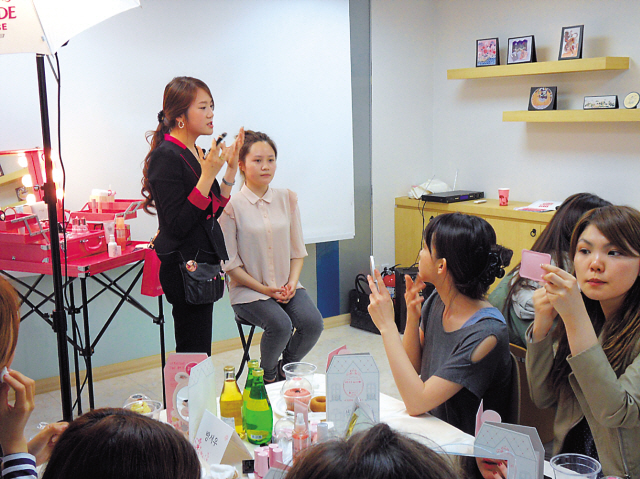 |
| K-beauty class (Seoul Global Culture and Tourism Center) |
“The center created the K-pop programs to promote the contemporary and trendy side of Korean culture to foreigners. We will continue to come up with fun cultural programs like K-beauty and K-culture based on requests and demands of foreign visitors,” said city official Kim Myung-joo, who is in charge of supporting foreign residents in Seoul.
As K-pop is a large part of Korean culture, the Korea Tourism Organization seeks to use K-pop to shed light on other aspects of Korean culture as well.
At a language conference in Cambodia earlier this year, the state tourism agency drew much attention to the Korean language by holding a quiz show on K-pop music, according to Baik Ju-hyun from Hallyu Tourism Team of the KTO.
“We continue to come up with various programs that combine K-pop with other fields to better promote Korean culture to the world,” said Baik.
By Lee Woo-young (wylee@heraldcorp.com)









